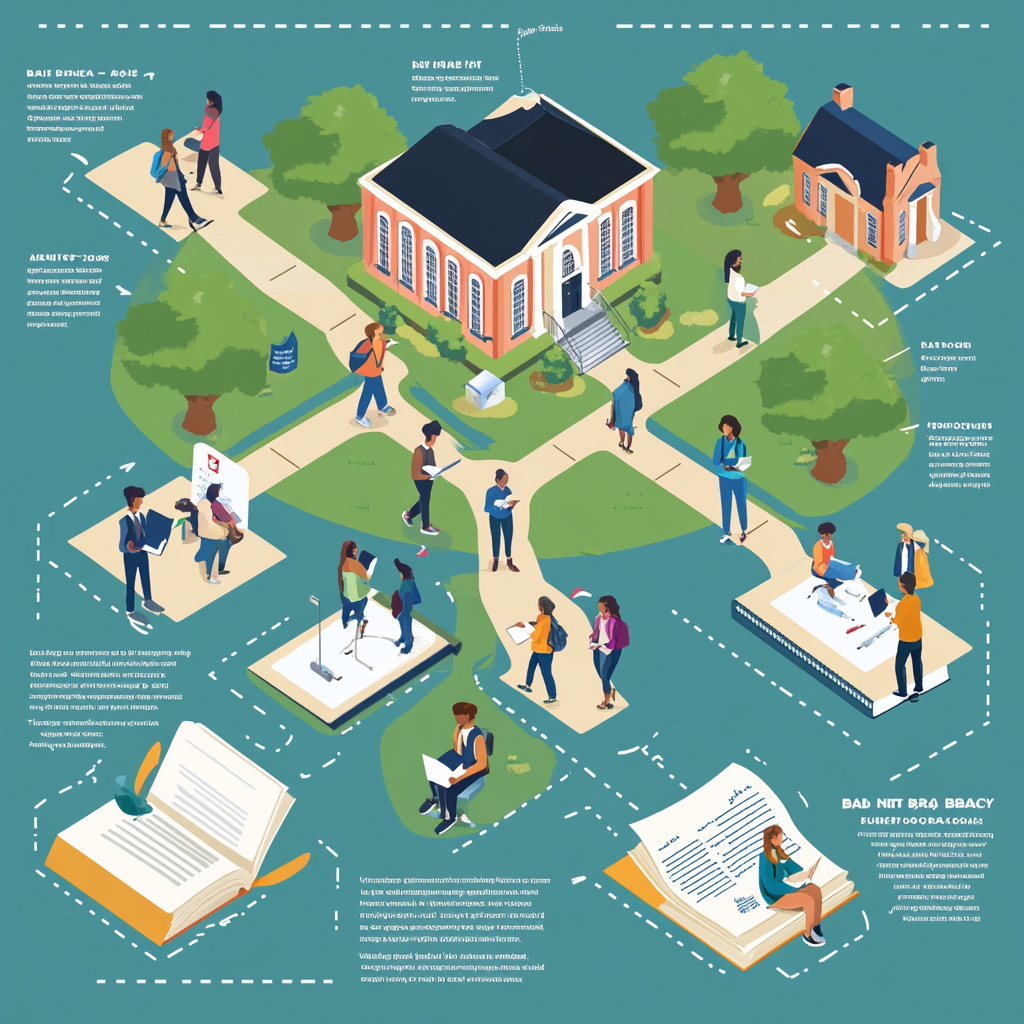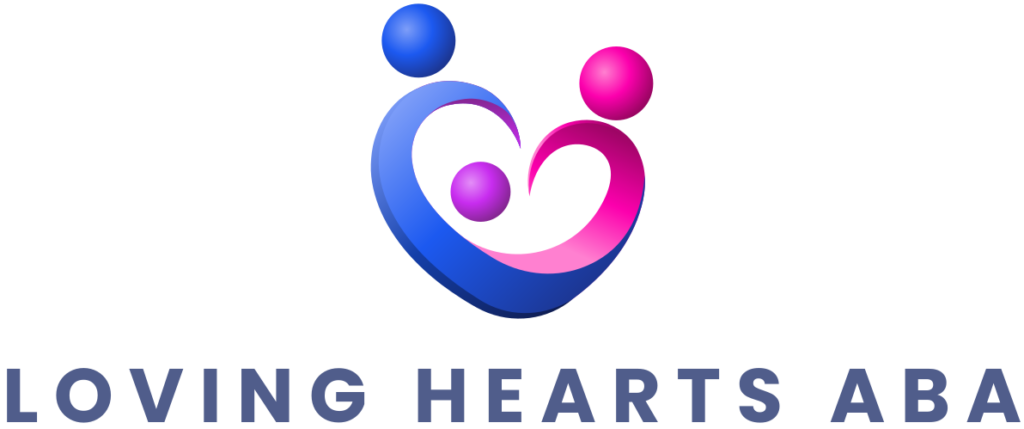Educational Requirements

Obtaining a Bachelor’s Degree
The first step in how to become a BCBA in Baltimore is earning a Bachelor’s Degree in psychology, education, behavioral science, or a related field. While this degree does not qualify you for BCBA certification, it is the foundation for further study in Applied Behavior Analysis (ABA).
- Popular undergraduate fields: Psychology, Education, Social Work, Behavioral Health
- Recommended coursework: Introduction to ABA, Human Behavior, Behavior Assessment, Research Methods
- Some students may complete RBT training to gain hands-on experience in the field before pursuing a graduate program.
Earning a Master’s Degree in Applied Behavior Analysis (ABA) or a Related Field
To qualify for BCBA certification, you must earn a Master of Science (MS) in Applied Behavior Analysis (ABA) or a graduate degree in a related field such as Psychology or Special Education.
- ABA Programs in Baltimore:
- Mount St. Mary’s University (Offers Course Sequence for BCBA certification)
- University of Maryland, Baltimore County (UMBC) – Human Services Psychology Program
- Online MS Options: Purdue Global, Pepperdine University, and Walden University
Many prospective students opt for an online program to maintain a work-life balance while completing their education requirements.
Certification Process
Complete ABA Coursework
To meet certification requirements, students must complete a Verified Course Sequence (VCS) approved by the Behavior Analyst Certification Board (BACB). Programs offering this coursework ensure candidates receive high-quality training in behavior assessment, behavioral intervention, and professional conduct.
Supervised Fieldwork

Aspiring Board Certified Behavior Analysts (BCBAs) must complete supervised fieldwork under a BCBA Supervisor. The two available options are:
- Supervised Independent Fieldwork (2,000 hours)
- Practicum (1,500 hours) – Offered through accredited ABA programs
Hands-on experience is crucial to mastering behavior-analytic services in various settings, including educational settings, therapy services, and clinical settings.
Applying for the BCBA Exam
The BCBA exam application process includes:
- Submitting official transcripts from a graduate school
- Paying the application fee to the Behavior Analyst Certification Board
- Providing proof of supervised fieldwork
- Meeting any additional requirements set by the Maryland Board of Professional Counselors
Preparing for and Passing the BCBA Exam
Pearson VUE administers the BCBA exam and assesses knowledge of Applied Behavior Analysis (ABA), behavior change techniques, and professional conduct.
Study tips for BCBA candidates:
- Enroll in BCBA exam prep courses offered by institutions such as Pepperdine University or Purdue Global
- Utilize BCBA practice exams to familiarize yourself with the test format
- Study evidence-based interventions and ethics outlined by the BACB
Licensing Requirements in Maryland
In addition to certification, BCBAs practicing in Baltimore, MD, must adhere to regulations set by the Maryland Board of Professional Counselors. Requirements may include:
- A current certification from the BACB
- Passing additional state-specific exams
- Renewing licenses periodically to continue providing behavior-analytic services
Finding BCBA Programs in Baltimore
Universities and Colleges
Baltimore offers several ABA programs that provide the necessary coursework and field experience for BCBA candidates.
- Mount St. Mary’s University – Offers a Post-Master’s Certificate in Applied Behavior Analysis
- University of Maryland, Baltimore County (UMBC) – ABA specialization in the Human Services Psychology program
- Loyola University Maryland – School of Education
Online Programs
For those needing flexibility, online BCBA programs allow students to complete coursework remotely. Recommended online master’s programs include:
- Walden University – Online MS in ABA
- Pepperdine University – Online Master’s in ABA
- Purdue Global – Applied Behavior Analysis Program
Gaining Practical Experience
Internship Opportunities
Internships in behavioral health facilities provide practical experience for ABA professionals in Baltimore, MD. Opportunities exist in:
- Autism therapy centers
- Public and private schools
- Behavioral intervention clinics
Practicum Requirements
Students completing a practicum in ABA therapy gain essential field experience under BCBA Supervisors.
Full-Time vs. Part-Time BCBA Work Options
Many professionals entering the field of ABA wonder whether they should pursue full-time or part-time work.
- Full-time positions offer stability, benefits, and increased employment opportunities.
- Part-time roles allow for flexibility and are ideal for students gaining work experience.
- Registered Behavior Technicians (RBTs) often transition into full-time BCBA positions after obtaining certification.
Pursuing a Doctoral Degree in Applied Behavior Analysis
For those interested in career advancement, earning a doctoral degree in Applied Behavior Analysis can open doors to higher-paying roles in research, academia, and leadership.
- Doctoral Programs in the United States:
- University of Maryland, College Park – PhD in Psychology with an ABA focus
- Nova Southeastern University – PhD in ABA
- University of Kansas – PhD in Behavioral Psychology
Many BCBA candidates choose to continue their education in a doctoral program to refine their expertise in human behavior, behavioral intervention, and professional conduct.
Career Advancement and Employment Opportunities

With the growing demand for ABA professionals, job openings for BCBAs, Board Certified Assistant Behavior Analysts (BCaBAs), and Applied Behavior Analysts are expanding nationwide, including in Baltimore, MD, New Jersey, and other areas in the United States.
Career Paths for BCBAs
- Clinical Directors overseeing therapy services for individuals with autism spectrum disorder
- BCBAs in Educational Settings, working alongside team members such as teachers and school psychologists
- Applied Behavior Analysts in hospitals, rehabilitation centers, and mental health facilities
Job Outlook and Career Opportunities for BCBAs in Baltimore
There is a growing demand for BCBA jobs in the Mid-Atlantic region. Career paths include:
- Clinical Directors at autism therapy centers
- Behavior Analysts in educational settings
- BCBAs working with developmental disabilities
- ABA Therapy Coordinators in hospitals and behavioral health facilities
Continuing Education and Maintaining Certification
CEUs (Continuing Education Units)
BCBAs must earn Continuing Education Units (CEUs) to maintain their BCBA credential.
Renewal Process
Certification renewal involves:
- Completing CEUs
- Adhering to Professional Conduct standards
- Submitting renewal fees to the BACB
Professional Organizations and Resources
Association for Behavior Analysis International (ABAI)
The Behavior Analysis International (ABAI) provides professional development and networking opportunities for ABA professionals.
Maryland Association for Behavior Analysis (MABA)
The Maryland Association for Behavior Analysis (MABA) supports BCBAs in the state by offering:
- Annual conferences
- Job postings for BCBA jobs
- Research publications on behavior change
Conclusion and Next Steps
Setting Career Goals
Becoming a BCBA in Baltimore offers a unique opportunity to make a meaningful impact in Applied Behavioral Analysis.
Networking and Professional Development
Connecting with faculty members, clinical directors, and fellow ABA professionals helps advance your career path.
Final Tips for Aspiring BCBAs in Baltimore
- Request Info from accredited ABA Programs
- Explore financial aid options for your graduate program
- Set a start date for your coursework and fieldwork to stay on track
By following these steps, you can successfully navigate the education requirements, certification process, and job market to become a Board Certified Behavior Analyst in Baltimore, MD.
